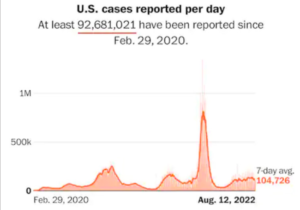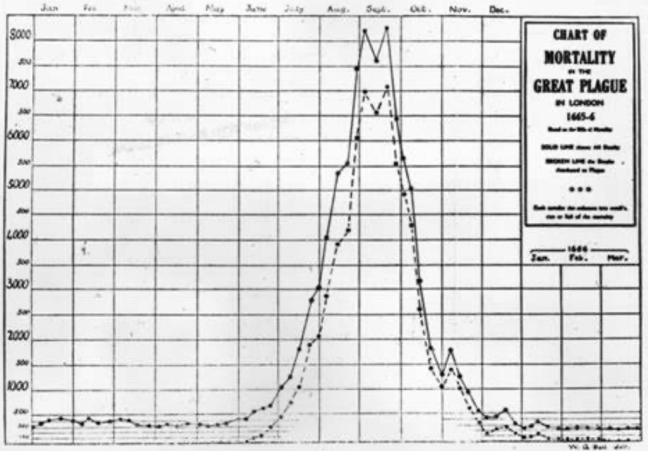Looking back at how Covid-19 compares to the Spanish Flu of 1918
WRITTEN BY OWEN ARNOLD
Holden Hughes, a DHS graduate whose graduation and senior year in total was ravaged by Covid. He couldn’t visit his grandfather who was not only extremely susceptible to Covid but was also in a fight with cancer. Holden has a very interesting experience with Covid, seeing as how two of the most important years of high school (junior and senior) were both heavily impacted by the virus.
Holden believes that the pandemic ended when he went to college and his grandfather passed away. This is just one of many stories that truly show the horrors of what we, as DHS students, and the world as a whole had to go through during Covid.

As of 2023, Covid seems to have taken a major hit; this is obviously thanks to several helpful vaccines and booster shots. However, that begs the question, is Covid still a big enough threat to be considered an active pandemic?
Covid shares many similarities to other viruses. The most famous outbreaks in history are the bubonic plague that ravaged through Europe in the 1300s and again in the 1600s, the Spanish flu of 1918, and Covid-19 of 2020. All of these viruses spread rapidly and begged dire responses. Vaccines were a necessity and they showed up quickly. However, Covid seems a little bit different. It might just be because we are living through it, but Covid does seem to be coming back a little sooner and a little harder than other major outbreaks. It has a unique ability to adapt and evolve quickly whether it be omicron, alpha, or beta variants.
Whether Covid ends up being exactly like another virus of history or is completely different, we can all agree that it has been (and will continue to be) a unique experience.
DHS junior Lachlan Imfeld said that the virus hasn’t necessarily been awful for his family. Although they all have had it at some point or another, he sees it more as just scary in theory. Lachlan’s family was prevented from going to his grandfather’s funeral due to the virus, taking a major mental and emotional toll on all of them.
Lachlan sees the virus as ending when it fell out of the news cycle; when people stopped talking about it, it went away.
According to a Squall Survey of 169 students, slightly fewer than 50% feel the virus is still a pandemic, while another 30% believe the pandemic ended with the lifting of mask mandates. There were around 5% of those surveyed who believe Covid-19 was never that big of a deal.

